7-Eleven Japan now has two tiers of salmon rice balls, but is the new, cheaper one any good?【Taste test】
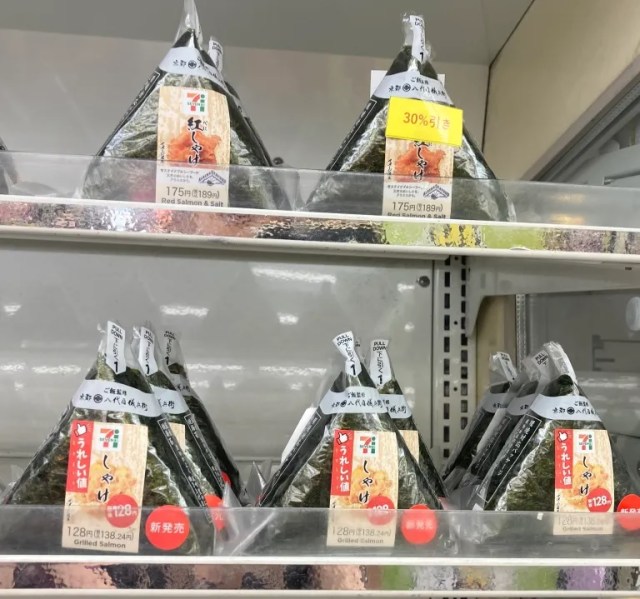
It’s salmon vs. salmon as we taste-test 7-Eleven’s attempt to stem the tide of rampant combini onigiri price inflations.
Onigiri (rice balls) are one of the greatest things about Japanese convenience stores. Healthier than sweets but not as heavy as a boxed lunch or sandwich, onigiri are a great choice when you need to grab a quick, on-the-go snack that’s still nutritious and inexpensive.
Except, that “inexpensive” part is becoming less applicable to convenience store onigiri these days. Just a few years ago, you could get salmon onigiri, one of the most basic and ubiquitous types of rice ball, for around 120 yen (US$0.75), and as little as 100 yen if there was a sale going on. Nowadays, though, even with prices for all sorts of things going up in Japan, onigiri prices are really rising rapidly. 7-Eleven, for example, has raised the price of their standard salmon onigiri, all the way up to 189 yen.
189 yen isn’t so expensive that we absolutely can’t afford them, but it is expensive enough to make us think twice about buying convenience store onigiri, and sometimes that second thought ends up being “Nope, not worth it.” So we were pleasantly surprised, but also a little confused, to find out that 7-Eleven now has two types of salmon onigiri, and the new one is considerably cheaper.
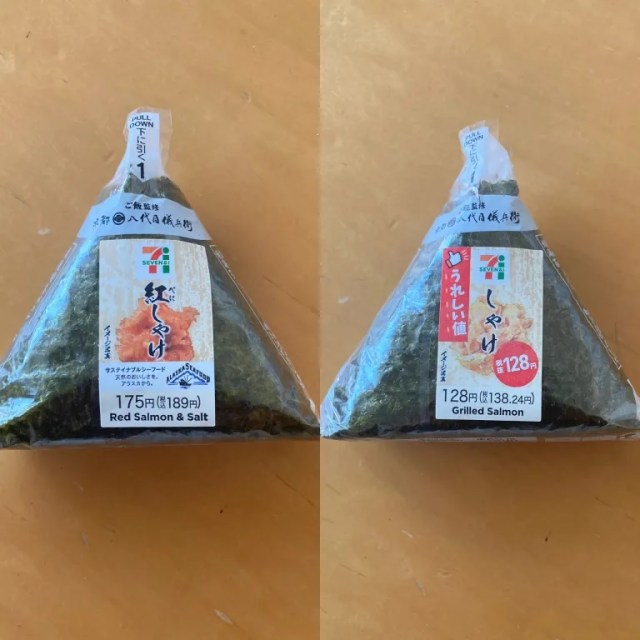
On the left in the above photo is 7-Eleven’s familiar benishake/red salmon onigiri, and on the right is their newly debuted shake/grilled salmon, which is 138 yen after tax, more than 25-percent cheaper.
But does the lesser price come with inferior flavor? Curious to find out, we picked up one of each 7-Eleven salmon onigiri for a taste test, starting with the new, budget-friendly shake/salmon.
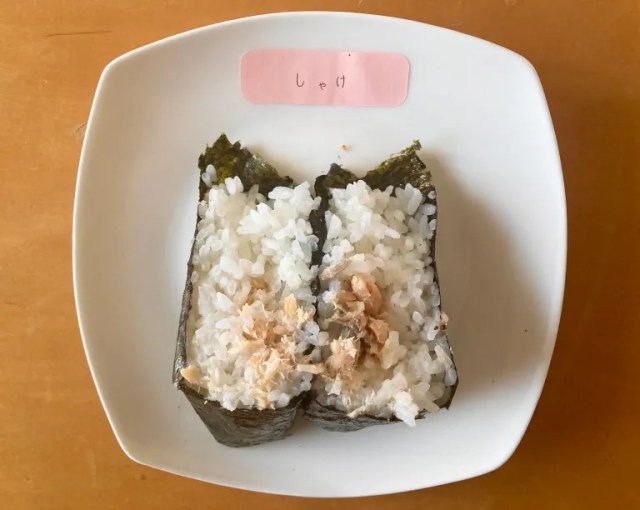
Given the cheaper price, our Japanese-language reporter Snufkin, who was handling taste-testing duties, braced for the possibility of dry, flaky fish and hard, crumbly rice. When she took a bite, though, all she experienced was…the joy of eating a tasty salmon rice ball.
The salmon had a great amount of umami and moisture without being too heavy or soggy, and even the rice itself tasted great. Really, she has no complaints about it whatsoever.
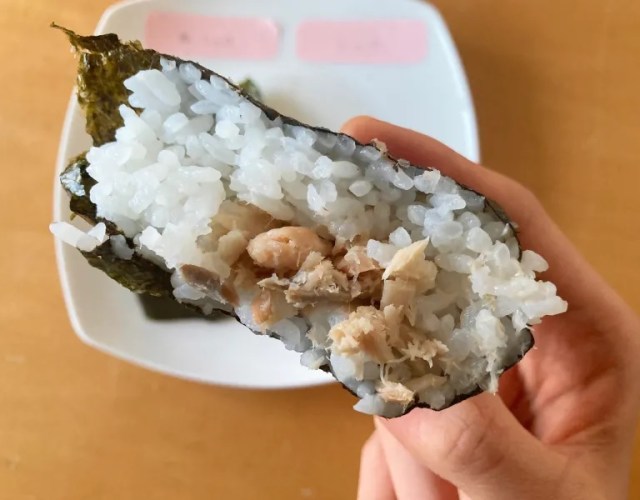
Having been fully satisfied by the cheaper onigiri, Snufkin anticipated the more expensive red salmon onigiri would be escorting her taste receptors to an even higher plane of culinary contentedness. Performing the pre-bite visual inspection, she noticed that the red salmon (or sockeye salmon, to use benishake’s other in-English name) really does have a vivid color, and it seems like 7-Eleven gives you just a little more filling quantity here.
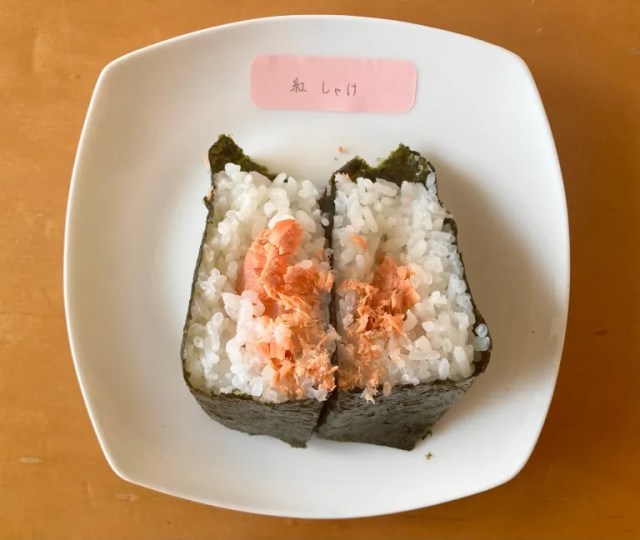
So after finding the less-expensive salmon onigiri “Delicious,” what does Snufkin have to say about the more expensive one?
That it’s delicious…just like the cheaper rice ball.
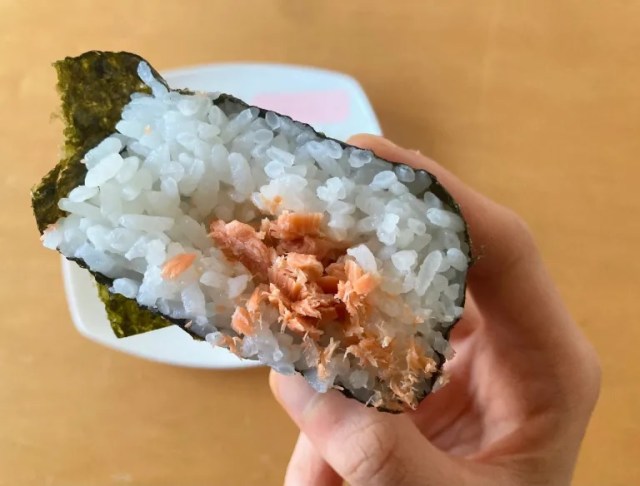
Honestly, Snufkin doesn’t feel like there’s much difference at all between the two. The red salmon isn’t markedly richer or more flavorful than the lower-priced onigiri’s salmon. In other words, she thinks the cheap one is just as good as the expensive one.
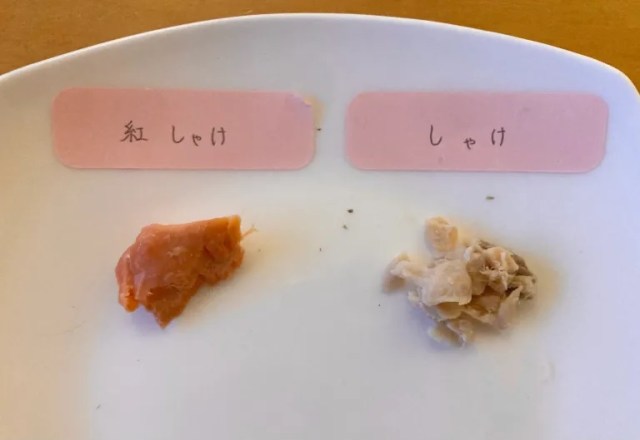
Even after tasting the fillings by themselves back-to-back, can’t declare the more expensive one “better.” If she had to draw a differentiating line between them, the cheaper salmon is slightly less fishy-tasting and fishy-smelling than the red salmon.
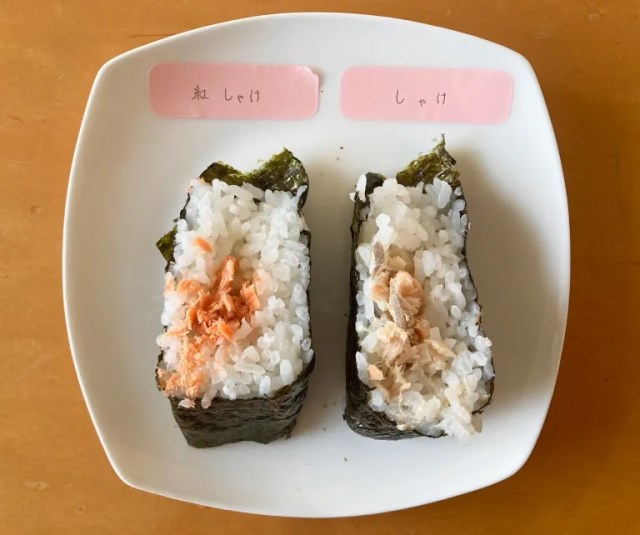
Of course, individual tastes being what they are, it’s possible that you might find one more appealing to you taste buds than the other. Honestly, though, they’re close enough that Snufkin can’t imagine someone liking one but not the other, so hopefully 7-Eleven has more throwback-priced onigiri in the works.
Photos ©SoranNews24
● Want to hear about SoraNews24’s latest articles as soon as they’re published? Follow us on Facebook and Twitter!
Credit:

0 comments: